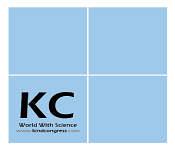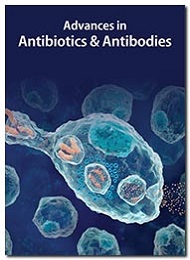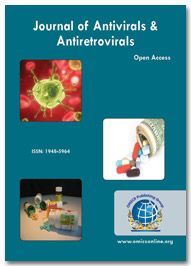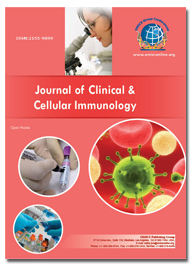Theme: Antibiotics: Immunological Techniques and Antimicrobial Resistance
Antibiotics Summit 2018
| Conference Name | Date | Venue |
| Antibiotics Summit 2018 | December 06-07, 2018 | Amsterdam, Netherlands |
We are overwhelmed to announce and welcome you all to the commencement of our “Annual Congress on Antibiotics and Antimicrobial Resistance”(Antibiotics Summit 2018) under the theme of Antibiotics: Immunological Techniques and Antimicrobial Resistance.
| Category | Date |
| First Deadline of Abstract Submission | September 10, 2018 |
| First Early Bird Registration Date | September 15, 2018 |
| Category | Date |
| Second Deadline of Abstract Submission | October 15, 2018 |
| Second Early Bird Registration Date | October 25, 2018 |
| Category | Date |
| Final Abstract Submission Date | November 07, 2018 |
| Final Registration Date | December 06, 2018 |
Who to Attend?
Over the years antibiotics have saved many lives by the process of how bacteria were killed using antibiotics. A new study reveals that penicillin and other antibiotics produce destructive molecules that fatally damage bacterial DNA through a long chain of cellular events. New targets involve some bacterial cell is able to save itself from antibiotic-induced DNA damage. Thus recent research is required to understand and solve this problem.In this Conference we invite eminent personalities from universities, clinical research institutions and diagnostic companies, business people oriented with the field of antibiotics to share their research involvements and views on all aspects of this rapidly growing field of antibiotics and thereby, providing a showcase of their latest techniques.
- Immunologists
- Pharmacists
- Doctors
- Researchers, academia
- Drug Manufacturers
- Faculties
- Vaccine Associations.
- Young researchers
- Occupational Therapists
- Business Entrepreneurs
- Biomedical companies
- Medical and Healthcare Professionals
- Deans & Directors of Medical Universities and Institutes
- Pharmaceutical companies.
- Associations of Antibiotics
Track 01: Antibiotics
Antibiotics are type of Antimicrobial drugs used in treatment and prevention of bacterial infections. Normally they are medicines that help stop infections caused by bacteria. Some infections such as ear and sinus infections, Dental Infections, Skin Infections, Whooping Cough, Bladder and Kidney Infections and even cancer etc. can be cured using antibiotics. Some are toxic to humans and animals also, even when given in therapeutic dosage.
Related association:
Asian society for Pediatric Infectious diseases, Australian Society for Antimicrobials, Australian society for Infectious Diseases, British Society for Antimicrobial Chemotherapy, Canadian Society for Immunology, Canadian Society of Allergy and Clinical Immunology
Related conferences:
World Congress on Antibiotics and Antimicrobial Resistance on September 23-24, 2019 at Rome, Italy, 7th International Conference and Exhibition on Bacteriology Antibiotics on April 24-25, 2019 at Vancouver, Canada.
Track 02: Application of Antibiotics
The choice of relevant antibiotics is presently based on individual patient’s need. A large number of bacterial diseases have been brought under control by using antibiotics. These include pneumonia, cholera, tuberculosis and leprosy. The antifungal antibiotic griseofulvin has controlled the debilitating fungal skin diseases such as ring worm. Antibiotics can be used in many other fields rather than a Antimicrobial agent. There are certain antibiotics which can be used in canning Industry or antibiotics such as penicillins, tetracyclines, erythromycins were very widely used in processing of animal feeds.
Related associations:
American Academy of Allergy, Asthma and Immunology, American Association of Pharmaceutical Scientists, American Society of Hematology, Antibiotic action, Arizona Humane Society, Arizona Humane Society
Related Conferences:
Antibiotics, Antimicrobials & Resistance on October 11-12, 2018 at Edinburgh, Scotland, 6th World Congress and Exhibition on Antibiotics and Antibiotic Resistance on June 03-04, 2019 at London, UK, 2nd World Congress On Antibiotics on October 14-15, 2019 at London, UK.
Track 03: Types of Antibiotics
Antibiotics belong to a class of antimicrobials, a larger group which also includes anti-virals, anti-fungal, and anti-parasitic drugs. The main classes of antibiotics are Beta-Lactams which again include Penicillins and cephalosporin, Macrolides, Fluoroquinolones, Tetracyclines, and Aminoglycosides.
Related Associations:
European Centre for Disease Prevention and Control, Immunization Action Coalition, Infectious Diseases Society of America Honors , International Cytokine Society, International Society for Neuroimmunology, International Society for Vaccines
Related Conferences:
World congress on Infectious Diseases & Antibiotics on November 28th & 29th at Bengaluru, India, 2nd Annual Summit on Antimicrobials and Drug Resistance on September 24-25, 2018 at Montreal, Canada, 6th Edition of International Conference on Antibiotics, Antimicrobials and Resistance on Oct 11 - Oct 12, 2018 at Edinburgh, Scotland
Track 04: Antibiotic Resistance
Antibiotic resistance occurs when bacteria develop the ability to defeat the drugs designed to kill them. Antibiotic resistance can naturally evolve via natural selection through random mutation, but it could also be engineered by applying an evolutionary stress on a population. Overuse of broad-spectrum antibiotics, such as second- and third-generation cephalosporin, can develop resistance very easily. Bacteria have an ability to neutralize an antibiotic by changing it in a way that makes it harmless others have learned how to pump an antibiotic back outside of the bacteria. Some bacteria can change their outer structure so that the antibiotic cannot attach itself to the bacteria’s body.
Related Societies:
International Society of Antimicrobial chemotherapy, International Union of Immunological Societies, Microbiology Society, Pan American Group for Immunodeficiency, PsychoNeuroImmunology Research Society, Royal Society of Biology, Society for applied microbiology
Related Conferences:
International Conference on Antimicrobial and Antibacterial Agents on November 19-20, 2018 at Bucharest, Romania, 20th International Conference on Bacterial Vaccines and Antibiotic Resistance on September 10 - 11, 2018 at Singapore, SG.
Track 05: Mechanism: Antibiotics
Antibiotic action falls under main five mechanism
- Inhibition of Cell Wall Synthesis
- Inhibition of Protein Synthesis (Translation)
- Alteration of Cell Membranes
- Inhibition of Nucleic Acid Synthesis
- Antimetabolite Activity
Different antibiotics have different modes of action, owing to the nature of their structure and degree of affinity to certain target sites within bacterial cells.
Related association:
Asian society for Pediatric Infectious diseases, Australian Society for Antimicrobials, Australian society for Infectious Diseases, British Society for Antimicrobial Chemotherapy, Canadian Society for Immunology, Canadian Society of Allergy and Clinical Immunology
Related conferences:
World Congress on Antibiotics and Antimicrobial Resistance on September 23-24, 2019 at Rome, Italy, 7th International Conference and Exhibition on Bacteriology Antibiotics on April 24-25, 2019 at Vancouver, Canada.
Track 06: Interaction of Antibiotics
The potentiation of toxic side effects of one drug by another is a common type of interaction. Alcohol can interact severely with antibiotic Antibiotics can also interact with birth Control pills greatly. There are two ways that antibiotics potentially can reduce the action of birth control pills. Birth control pills contain estrogens so some antibiotics cause the enzymes in the liver to increase the break-down of estrogens and thereby can decrease the levels of estrogens in the body and thus can reduce the effectiveness of the pills.
Related Associations:
European Centre for Disease Prevention and Control, Immunization Action Coalition, Infectious Diseases Society of America Honors , International Cytokine Society, International Society for Neuroimmunology, International Society for Vaccines
Related Conferences:
World congress on Infectious Diseases & Antibiotics on November 28th & 29th at Bengaluru, India, 2nd Annual Summit on Antimicrobials and Drug Resistance on September 24-25, 2018 at Montreal, Canada, 6th Edition of International Conference on Antibiotics, Antimicrobials and Resistance on Oct 11 - Oct 12, 2018 at Edinburgh, Scotland
Track 07: Pediatric Antibiotics
Prescription of antibiotics in children is a scrupulous act. Side effects from antibiotics are a common reason that children go to the emergency room. The drugs can cause diarrhea or vomiting, and about 5 in 100 children have allergies to them. Some of these allergic reactions can be serious and life threatening. The repeat prescriptions at interval 0–2 days may be considered as overprescribing.
Related associations:
American Academy of Allergy, Asthma and Immunology, American Association of Pharmaceutical Scientists, American Society of Hematology, Antibiotic action, Arizona Humane Society, Arizona Humane Society
Related Conferences:
Antibiotics, Antimicrobials & Resistance on October 11-12, 2018 at Edinburgh, Scotland, 6th World Congress and Exhibition on Antibiotics and Antibiotic Resistance on June 03-04, 2019 at London, UK, 2nd World Congress On Antibiotics on October 14-15, 2019 at London, UK.
Track 08: Drug Discovery
The idea that the effect of a drug in the human body is mediated by specific interactions of the drug molecule with biological macromolecules, (proteins or nucleic acids in most cases) led scientists to the conclusion that individual chemicals are required for the biological activity of the drug. This made for the beginning of the modern era in pharmacology, as pure chemicals, instead of crude extracts of medicinal plants, became the standard drugs.
Related Societies:
International Society of Antimicrobial chemotherapy, International Union of Immunological Societies, Microbiology Society, Pan American Group for Immunodeficiency, PsychoNeuroImmunology Research Society, Royal Society of Biology, Society for applied microbiology
Related Conferences:
International Conference on Antimicrobial and Antibacterial Agents on November 19-20, 2018 at Bucharest, Romania, 20th International Conference on Bacterial Vaccines and Antibiotic Resistance on September 10 - 11, 2018 at Singapore, SG.
Track 09: Antibiotic Prophylaxis
Antibiotic prophylaxis is the use of antibiotics before surgery or a dental procedure to prevent a bacterial infection. Antimicrobial prophylaxis is commonly used by clinicians for the prevention of numerous infectious diseases, including herpes simplex infection, rheumatic fever, recurrent cellulitis, meningococcal disease, recurrent uncomplicated urinary tract infections in women etc. The choice of antibiotics should be made according to data on pharmacology, microbiology, clinical experience and economy. Drugs should be selected with a reasonable spectrum of activity against pathogens likely to be encountered.
Related association:
Asian society for Pediatric Infectious diseases, Australian Society for Antimicrobials, Australian society for Infectious Diseases, British Society for Antimicrobial Chemotherapy, Canadian Society for Immunology, Canadian Society of Allergy and Clinical Immunology
Related conferences:
World Congress on Antibiotics and Antimicrobial Resistance on September 23-24, 2019 at Rome, Italy, 7th International Conference and Exhibition on Bacteriology Antibiotics on April 24-25, 2019 at Vancouver, Canada.
Track 10: Next Generation Approach
The increasing fear of drug-resistant superbugs is leading to a growing push for the next generation of antibiotics. The development of new antibiotics is crucial to controlling current and future infectious diseases caused by antibiotic-resistant bacteria. The discovery of a new antibiotic called teixobactin was announced by international team of researchers in 2017. The researchers now plan on studying the bacteria and decide what tools might be able to control its behavior to release its full antibiotic potential. An expected 5– 10% of all hospitalizations are perplex by a nosocomial disease with an expected cost of $4.5– 5.7 billion every year in the USA alone. More varieties of biological solution are yet to be discovered in this field.
Related associations:
American Academy of Allergy, Asthma and Immunology, American Association of Pharmaceutical Scientists, American Society of Hematology, Antibiotic action, Arizona Humane Society, Arizona Humane Society
Related Conferences:
Antibiotics, Antimicrobials & Resistance on October 11-12, 2018 at Edinburgh, Scotland, 6th World Congress and Exhibition on Antibiotics and Antibiotic Resistance on June 03-04, 2019 at London, UK, 2nd World Congress On Antibiotics on October 14-15, 2019 at London, UK.
Track 11: Antibiotics Industrial Scope
Antibiotics can be used in non-medical industries. They are mainly used in animal husbandry, bee-keeping, fish farming and other forms of aquaculture, ethanol production, horticulture, antifouling paints, food preservation, and domestically.
Related Associations:
European Centre for Disease Prevention and Control, Immunization Action Coalition, Infectious Diseases Society of America Honors , International Cytokine Society, International Society for Neuroimmunology, International Society for Vaccines
Related Conferences:
World congress on Infectious Diseases & Antibiotics on November 28th & 29th at Bengaluru, India, 2nd Annual Summit on Antimicrobials and Drug Resistance on September 24-25, 2018 at Montreal, Canada, 6th Edition of International Conference on Antibiotics, Antimicrobials and Resistance on Oct 11 - Oct 12, 2018 at Edinburgh, Scotland
Track 12: Oncology Antibiotics
Laboratory-produced drugs used to target and destroy cancerous cells. Therapeutic anticancer antibiotics have become an accepted treatment for certain types of cancer. These drugs bind specifically to primary and metastatic cancer cells to block cell growth, while limiting effects on surrounding healthy cells. Antibiotic medicines kill malignant cells by fragmenting the DNA in the cell nucleus and by oxidizing critical compounds the cells need.
For patients receiving chemotherapy, there is an increased risk of infection due to a low white blood cell count (neutropenia) caused by a toxic effect of chemotherapy on the bone marrow. Preventive antibiotic therapy before the development of fever prevents illness and death in people with a low white blood cell count after chemotherapy.
Related Societies:
International Society of Antimicrobial chemotherapy, International Union of Immunological Societies, Microbiology Society, Pan American Group for Immunodeficiency, PsychoNeuroImmunology Research Society, Royal Society of Biology, Society for applied microbiology
Related Conferences:
International Conference on Antimicrobial and Antibacterial Agents on November 19-20, 2018 at Bucharest, Romania, 20th International Conference on Bacterial Vaccines and Antibiotic Resistance on September 10 - 11, 2018 at Singapore, SG.
Track 13: Antibiotics Alternative
Certain microorganisms such as the cordial microscopic organisms that colonize the linings of the insides, upper respiratory tract, and lower urinary framework, withstanding the microorganisms, adding to safe protection and great absorption. Numerous alternatives to antibiotics are already being tested by researchers around the world. Two of these are the use of metals such as silver, zinc, and copper and the use of organic acids such as food acid that is used as a preservative in the food industry.
Related association:
Asian society for Pediatric Infectious diseases, Australian Society for Antimicrobials, Australian society for Infectious Diseases, British Society for Antimicrobial Chemotherapy, Canadian Society for Immunology, Canadian Society of Allergy and Clinical Immunology
Related conferences:
World Congress on Antibiotics and Antimicrobial Resistance on September 23-24, 2019 at Rome, Italy, 7th International Conference and Exhibition on Bacteriology Antibiotics on April 24-25, 2019 at Vancouver, Canada.
Track 14: Antibiotics and Public Heath
Antibiotics are strong medicines that treat bacterial infections. Common illnesses caused by bacteria are urinary tract infections, strep throat, and some pneumonia. Antibiotics can treat bacterial infections by killing the bacteria that causes them. Tetracycline are often used to treat acne and rosacea. Sulfonamides used to treat UTIs, bronchitis, eye and ear infections, pneumonia, and bacterial meningitis. Cephalosporin can be used to treat UTIs, ear and skin infections, respiratory infections, bacterial meningitis, and sepsis.
Related associations:
American Academy of Allergy, Asthma and Immunology, American Association of Pharmaceutical Scientists, American Society of Hematology, Antibiotic action, Arizona Humane Society, Arizona Humane Society
Related Conferences:
Antibiotics, Antimicrobials & Resistance on October 11-12, 2018 at Edinburgh, Scotland, 6th World Congress and Exhibition on Antibiotics and Antibiotic Resistance on June 03-04, 2019 at London, UK, 2nd World Congress On Antibiotics on October 14-15, 2019 at London, UK.
Track 15: Antimicrobial Resistance
Antimicrobial resistance happens when microorganisms (such as bacteria, fungi, viruses, and parasites) change when they are exposed to antimicrobial drugs (such as antibiotics, antifungals, antivirals, antimalarial, and anthelmintic). Without effective antimicrobials for prevention and treatment of infections, medical procedures such as organ transplantation, cancer chemotherapy, diabetes management and major surgery become very high risk. Antimicrobial resistance is a complex problem that affects all of society and is driven by many interconnected factors. Single, isolated interventions have limited impact. There have been increasing public calls for global collective action to address the threat, including a proposal for international treaty on antimicrobial resistance.
Related Societies:
International Society of Antimicrobial chemotherapy, International Union of Immunological Societies, Microbiology Society, Pan American Group for Immunodeficiency, PsychoNeuroImmunology Research Society, Royal Society of Biology, Society for applied microbiology
Related Conferences:
International Conference on Antimicrobial and Antibacterial Agents on November 19-20, 2018 at Bucharest, Romania, 20th International Conference on Bacterial Vaccines and Antibiotic Resistance on September 10 - 11, 2018 at Singapore, SG.
Learning Objectives
Upon participation & completion of this three days educational activity, participants will be able to:
- Share and describe new developments in the field of antibiotics.
- They can compare research guidelines and good practices with new current practices and strength or gaps
- Discover new research techniques in development with practical implication used in recovery treatment or research fields
- Participants can build their networks of professionals and can find valuable resources
- Explain recent or upcoming changes in in drug designing and Antibiotic resistance.
- Demonstrate the knowledge of treating patients with different diseases.
- Usage of various patient screening tools that used to identify usage of substance
- Alternative ways to eliminate Antimicrobial Resistance and develop the area odf antibiotics.
Participation Benefits:
- Claim CPD Credits
- Keynote Presentation
- IOCM Certified certificates
- Presentation over concurrent streams
- Organize Workshops and Symposiums
- Poster Presentation
- Video/ Virtual Presentation
- Exhibitor and Sponsor displays
- Symposium and Networking
- Best Poster Award
- Young Researcher Award
- Publish of compositions in the supporting International Journals.
- Speaker Profile will be created along with Presentation Title.
- Abstract will be published with DOI number by Cross Ref
- B2B Sessions
Conference Highlights
- Antibiotics
- Types of Antibiotics
- Application of Antibiotics
- Antibiotic Resistance
- Mechanism : Antibiotics
- Interaction of Antibiotics
- Pediatric Antibiotics
- Drug Discovery
- Antibiotic Prophylaxis
- Next Generation Approach
- Antibiotics: Industrial Scope
- Oncology Antibiotics
- Antibiotics Alternative
- Antibiotics and Public Health
- Current Challenge and Market
- Antimicrobial
- Entrepreneurs Investment Meet
- Immunology
To share your views and research, please click here to register for the Conference.
To Collaborate Scientific Professionals around the World
| Conference Date | December 06-07, 2018 | ||
| Sponsors & Exhibitors |
|
||
| Speaker Opportunity Closed | Day 1 | ||
| Poster Opportunity Closed | Click Here to View | ||
Useful Links
Special Issues
All accepted abstracts will be published in respective Our International Journals.
- Advances in Antibiotics & Antibodies
- Journal of Clinical & Cellular Immunology
- Journal of Antivirals & Antiretrovirals
Abstracts will be provided with Digital Object Identifier by







